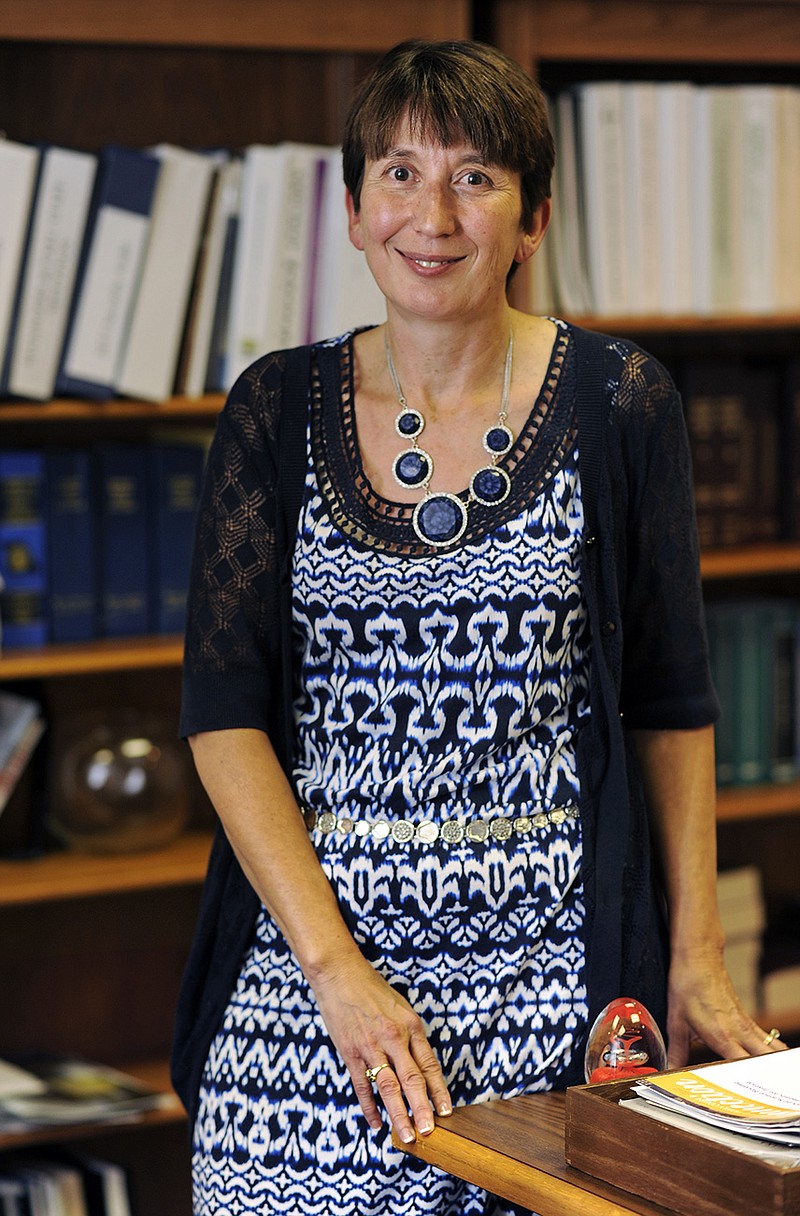At one time in her life, Kathy Lloyd considered going to law school.
After graduating from college with her master's degree in psychology and educational counseling, she'd gotten a job in Boone County's juvenile justice system, and, over the years, held a number of different positions in it.
In 1998, she was asked to help start Boone County's drug court. Then, from 2000-02, she worked at MU's School of Social Work, studying the effectiveness of drug courts around Missouri and around the country.
"I had taken off a little time from work to be with my kids, when they were young," she recalled last week, "and I had contemplated going to law school.
"At the same time, an opportunity at the local court to go back, in an administrative position, opened up - so I made the decision to go ahead and pursue the administrative position.
"And have been in administration ever since."
On Jan. 1, Lloyd - a Columbia native who now lives between Ashland and Columbia - left her job as the 13th Circuit Courts administrator to become head of Missouri's Office of State Courts Administrator (OSCA).
"That job was fairly comfortable for me, and I knew my way around it," she said last week. "I've told a couple of people lately that, when I was in this job for a couple of months, I would say, "What was I thinking?'
"Because, I actually was eligible to retire at the end of the year."
But Lloyd said she's "glad I took this job. I certainly feel like I've made the right move."
Being a courts administrator "was always hard to describe to people, when they asked, "What is it that you do?'" she said. "It still is, in this job."
At the circuit court level, her job involved "working very closely with the presiding judge" and the other judges, and working on the courts' budgets to present to the two county commissions.
The new, statewide position is a lot different.
"In this role, there's a lot of work with statewide organizations, be it court reporters or clerks or juvenile officers or committees like the Court Automation Committee," Lloyd said. "And, certainly, a lot more personalities."
She works with the 45 circuit courts as well as the Supreme and appellate courts.
One of the things she didn't understand from her work at the circuit level, Lloyd said, "was the role of committees, and the role committees play in the (courts') governance."
While critics often blame OSCA for all those committees' decisions and programs, she said, much of the committee structure is required by state law or Supreme Court rules.
She meets regularly - usually weekly - with Bill Thompson, the Supreme Court's clerk and her direct supervisor, and with the high court's chief justice - Mary R. Russell until July 1, when Patricia Breckenridge took over the duties.
OSCA has "division directors who handle various areas, like our technology services or our court business services," Lloyd said, "and we've got an administrative division director.
"Certainly one of the things we do is judicial education - trying to track what goes on during the legislative session," then letting the courts' personnel know what law changes are being discussed, which ones were approved and when they go into effect.
"A good example of how we take out that role is the changes to the criminal code that are coming in 2017," she said. "One of the things we have had to do is restructure the charge-code format - because we were out of numbers.
"So, we've been working to develop the new format and put that into the data system - and then educate clerks and others. Law enforcement's been working with us."
They want to have the new format ready by next year, so everyone has a year to "become familiar with the new charge code format" before the new criminal code becomes effective on Jan. 1, 2017, she said.
For all its challenges, Lloyd said being the state courts administrator "is invigorating. I just always have something different that's on the plate."
And those plates can get really large - like implementing the new criminal code, or the effort to bring electronic filing (rather than paper documents) to all 45 circuit courts.
"We anticipate we'll be done with that implementation about June of next year," Lloyd said.
Lloyd acknowledged she doesn't work alone, crediting her administrative coordinator, Jill Schroeder, with helping keep track of all those meetings and things to do.
"I've got really good staff," she added. "I'm new to the game, but I have a lot of folks who know the folks out in the courts and at the Supreme Court - and have really been essential in helping me navigate the new waters.
Lloyd said she travels "quite a bit in this job. Unfortunately, I haven't been able to travel as much as I would like.
"One of the things I wanted to do when I first got here was to get out to all of the local courts - of course, there are 114 counties plus the City of St. Louis, so that's very difficult to do."
She's visited some of the state's larger, single-county circuit courts.
In her rare spare time, Lloyd said, she and her husband spend as much time with family as possible.
Although she already could have retired, Lloyd has no plans to leave her new job at any time in the foreseeable future.
"My dad is 83 and still does 200 push ups a day," she said. "I hope I got the genes that will let me work well beyond 10 years - but who knows?"

